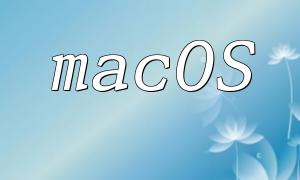With the rapid advancement of financial technology, companies are increasingly demanding robust, scalable, and secure systems. PHP, as a mature server-side language, has gained popularity in the financial sector thanks to its powerful frameworks such as Laravel, Symfony, and CodeIgniter. These frameworks provide the flexibility and tools needed to build modern financial applications.
Time-to-market is critical in the finance industry, where markets shift rapidly. PHP frameworks offer built-in tools, modular design, and package management, significantly reducing development time. Laravel's Eloquent ORM, for example, streamlines database interactions, allowing developers to focus on business logic.
<span class="token comment">// Example of using Laravel's Eloquent ORM for database queries</span>
<span class="token variable">$users</span> = App\Models\User::where('status', 'active')->get();
Security is paramount in financial systems, which often handle sensitive user data. Most PHP frameworks come with built-in security features, such as input validation and protection against SQL injection. Laravel also includes CSRF protection to prevent cross-site request forgery in form submissions.
<span class="token comment">// Example of Laravel's CSRF protection</span> @csrf
Financial projects are often large-scale and involve multiple departments. A well-structured and communicative team is essential to deliver quality products. Agile methodologies, including daily stand-ups and sprint reviews, are highly effective in improving collaboration and resolving issues promptly.
Developing financial applications requires cooperation among backend engineers, front-end developers, product designers, financial analysts, and QA testers. Building cross-functional teams with clear roles promotes efficiency and innovation throughout the development cycle.
Given the fast pace of technological change, team members must continually update their knowledge and skills. Companies can support ongoing learning through in-house training sessions, access to online platforms, and participation in industry events, helping teams stay competitive and adaptive.
To meet increasing technical demands, organizations must clearly define the skills they are looking for during the hiring process. Ideal candidates should not only be proficient in PHP frameworks but also possess an understanding of the financial domain. Technical assessments and scenario-based interviews are useful in evaluating problem-solving abilities.
While technical skills are critical, cultural alignment within the team can greatly impact productivity and morale. Behavioral interviews can provide insights into a candidate's values, communication style, and teamwork abilities, helping companies find talent that aligns with their organizational culture.
PHP frameworks provide financial organizations with the tools to build efficient and secure systems. However, technology alone isn't enough. Successful financial software development also depends on effective team structures and strategic talent acquisition. By leveraging the right frameworks and cultivating strong development teams, financial firms can thrive in the evolving digital landscape.









